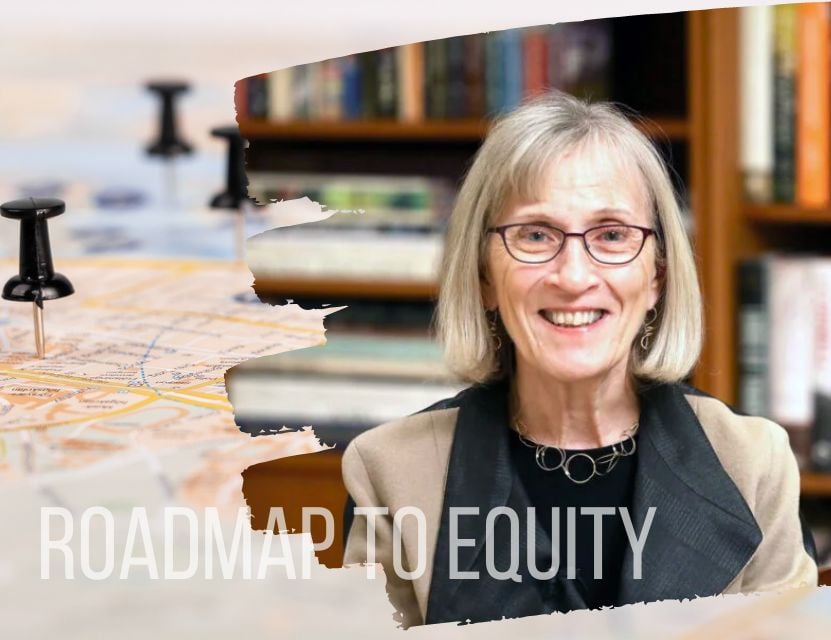The energy arena isn't for the faint-hearted.
Long hours and rigid schedules are often the rules of the game, pushing women to the sidelines. But it's high time we blow the whistle on this archaic playbook. Guided by Claudia Goldin's trailblazing research, we are all set to flip the script. The renowned labor economist has recently been awarded the prestigious Nobel Peace Prize for her groundbreaking work in gender equity.
And Claudia has some simple advice on how we get to true equity: Let's stop riding the waves of change passively, it's about time we seize control and steer the ship toward true equity. For me, this is about embarking on a journey to transform "representation matters" from a mere slogan to an irrefutable reality.
How inflexible roles and domestic responsibilities stunt equity.
Goldin's work has primarily focused on understanding gender disparities in labor markets, especially the gender wage gap. Her pioneering research has shed light on the complex interplay of societal norms, labor market structures, and individual choices that contribute to persistent wage differences between men and women. Goldin posits that one solution to this issue is to restructure traditional working hours and provide more flexibility, as rigid schedules often disproportionately disadvantage women.
In her seminal study, "A Grand Gender Convergence: Its Last Chapter", Goldin argues that the gender pay gap is not merely a result of discrimination, but rather stems from the high premium placed on overwork in many professions. This disproportionately affects women, who are often expected to shoulder more domestic responsibilities. Goldin found that professions that value long, inflexible hours tend to have the largest gender pay gaps.
We've been talking about representation in our industry, but what does it mean?
The energy industry, historically male-dominated, presents a striking example of the gender pay gap. Despite having made substantial strides towards gender equity in recent years, the disparity in pay between male and female workers in the sector still persists. Energy roles often require long, irregular hours, and a high degree of geographical mobility, especially those in the field. These factors tend to disadvantage women, who, due to societal norms, often bear a disproportionate share of domestic responsibilities including child and elder care.
The lack of flexibility in work schedules and the expectation of overwork, thus, emerges as critical barriers to achieving gender pay parity in the energy sector. Addressing these issues requires a systemic shift in organizational cultures and policies. Embracing Goldin’s principles, energy companies must rethink their approach to work schedules, and foster a culture that genuinely values work-life balance. This path, as Goldin suggests, is integral to closing the gender pay gap and achieving true gender equity in the workplace
She asserts that the "last chapter" of the grand gender convergence will only be written when there is no financial penalty for needing to work flexibly.
OK, so how do you do it?
As the CEO of ALLY Energy, my journey has been deeply intertwined with a relentless pursuit of gender equity in the workplace. I often get the question "How do you do it?" My career journey in energy, from corporate leader to startup founder would not have been possible without the unwavering support of my husband. Mark has more than been my equal partner, sharing domestic responsibilities and providing the emotional scaffolding that I need to excel in my work. His commitment mirrors mine, and his employer's understanding and acknowledgment of the need for work-life balance allow us both to contribute significantly in our respective fields. (Big thanks to Baker Hughes!)
The culture of support and flexibility at his workplace is a living example of the principles Prof. Goldin champions, and it provides a practical model that illustrates how structural changes in the working environment can promote equity. This approach not only empowers women but also fosters a sense of shared responsibility, allowing both partners to thrive in their professional and personal lives.
How can ALLY help you?
At ALLY Energy, our mission is to reshape industry norms and policies to emulate these principles. We are committed to helping our clients build workplaces with workforces that value flexibility and balance. We firmly believe that such an approach is integral to promoting gender equity and realizing the vision of the "Grand Gender Convergence" that Prof. Goldin advocates. As we celebrate her monumental achievement, we remain committed to her vision, and we strive to embody it in our work, for a more equitable world.




